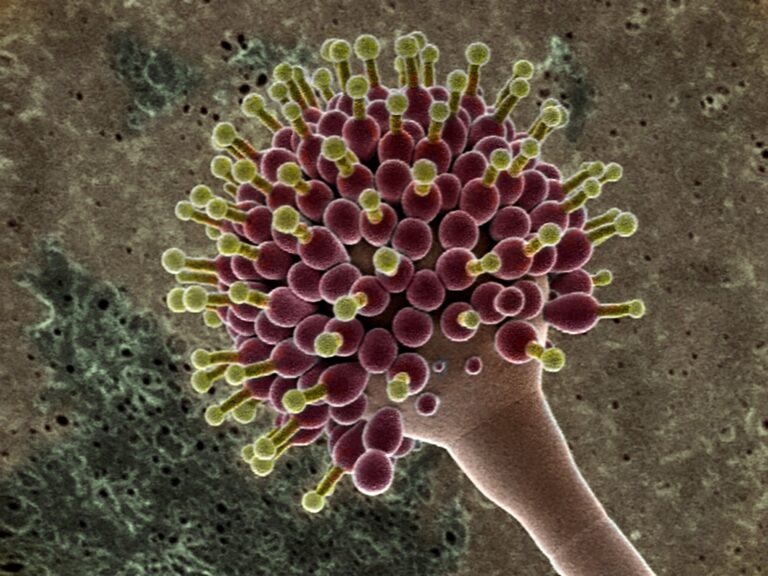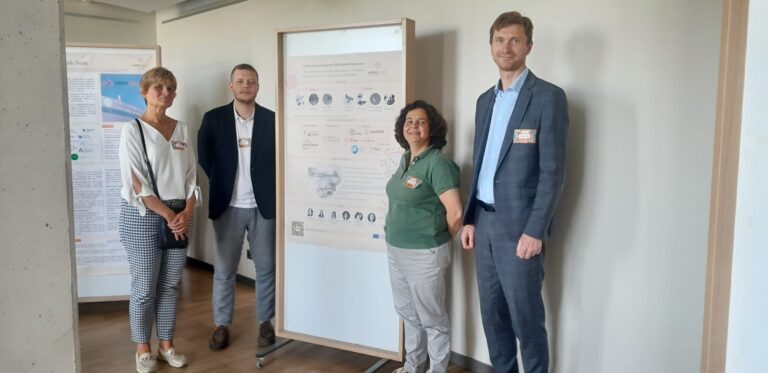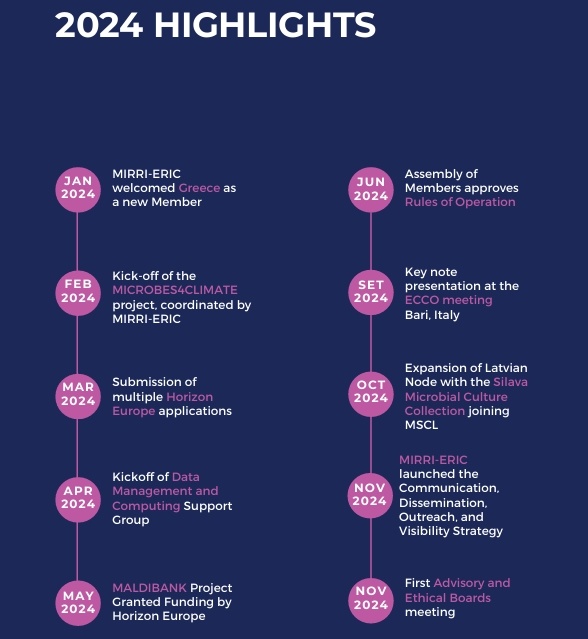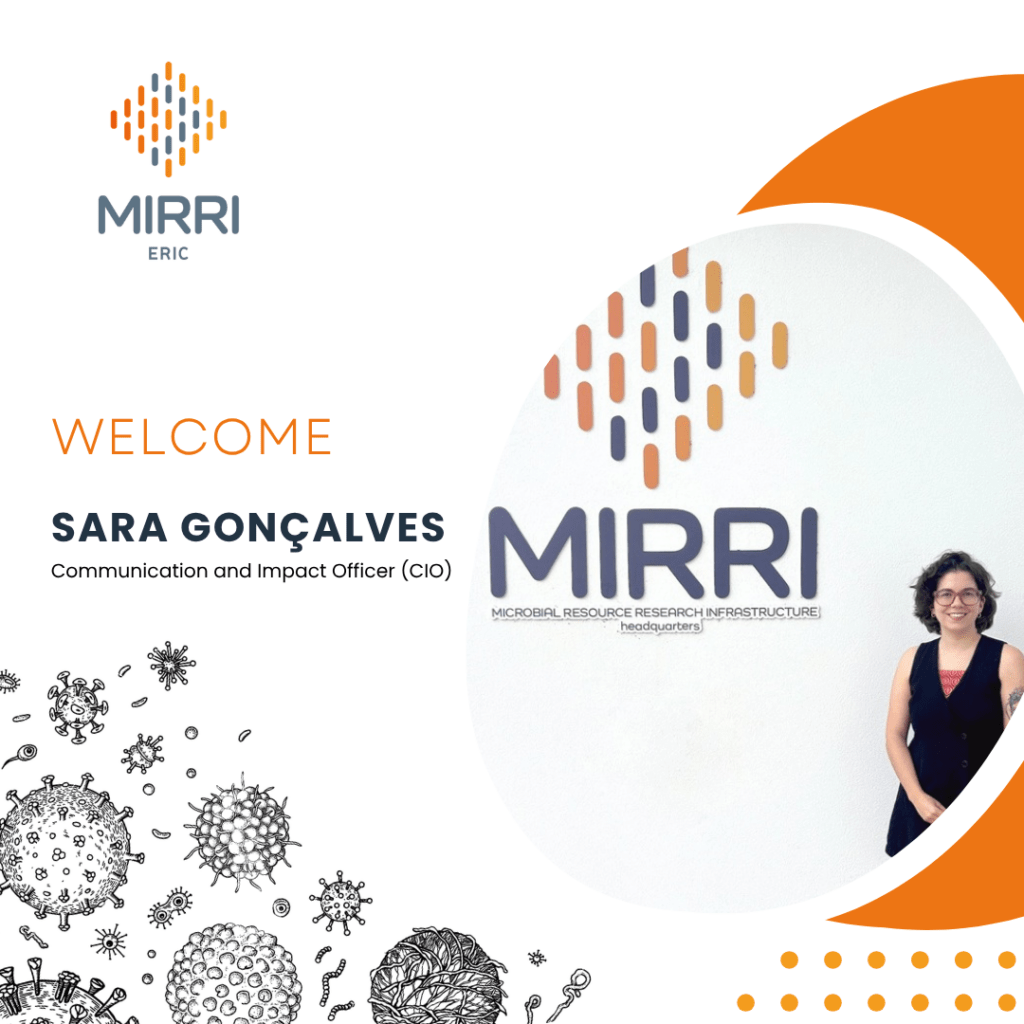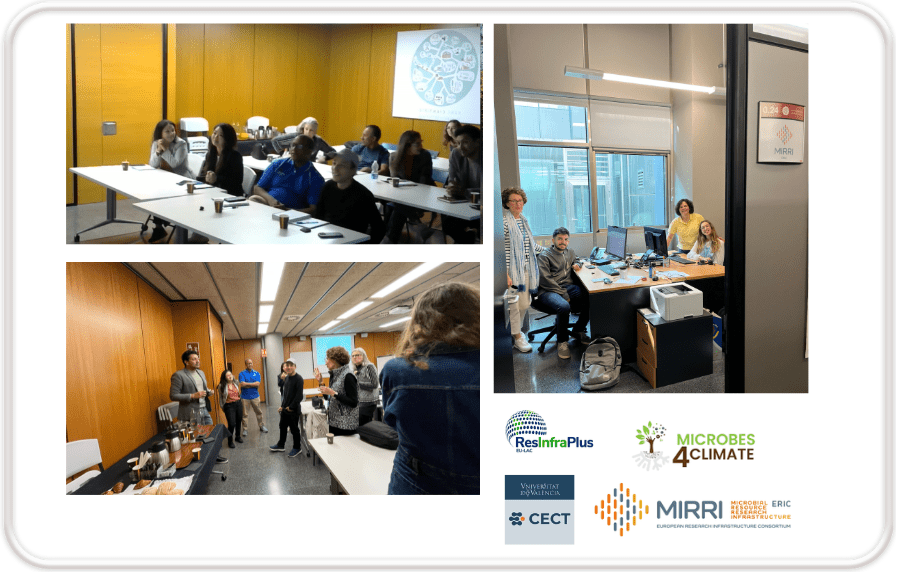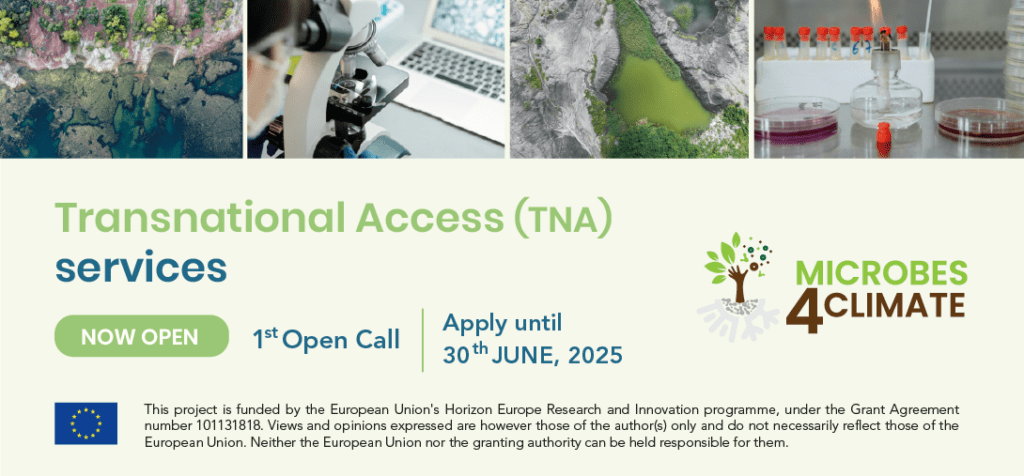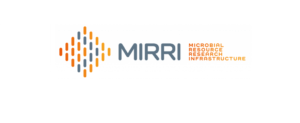
International Microorganism Day 2025: Celebrating the Power of Microbes
On September 17, scientists, educators and enthusiasts around the world celebrate International Microorganism Day, an annual occasion dedicated to raising awareness of the crucial roles microorganisms play in ecosystems, human health, agriculture, industry, energy, and environmental sustainability. MIRRI-ERIC took part in the celebration, participating, on this day, in ECCO XLIII Meeting and with the active engagement of the Microbial Strain Collection of Latvia (MSCL), one of our partners.
Happening between 15 and 17 of September, MIRRI-ERIC was highlighted in the 43rd annual meeting of the European Culture Collections’ Organisation (ECCO). Adil Ennaji, from our partner BELSPO, was MIRRI-ERIC’s representative, responsible for deliver a persentation that showed the history and the future of our Consortium.
Among many organisations contributing to the celebration of IMD 2025, MIRRI-ERIC’s partner Microbial Strain Collection of Latvia (MSCL), from the Faculty of Medicine and Life Sciences of the University of Latvia, formally integrated the programme with an all-day event. Alongside a scavenger hunt around the academic center, participants could also enjoy informal informational banners presentations prepared by biology students and graduates specializing in microbiology.
International Microorganism Day was launched in 2017 and, since 2020, is led by the Federation of European Microbiological Societies (FEMS). The date—17 September—was chosen because it marks a historic milestone in microbiology: on 17 September 1683, Antonie van Leeuwenhoek sent a letter to the Royal Society of London with the first description of a single-celled organism (in dental plaque). His observations, using self-made microscopes, are considered among the first records of microorganisms.
IMD aims to do more than commemorate that early discovery. Its mission is to bring microbiology to the general public, foster curiosity, and to spotlight microorganisms not just as pathogens, but as benefactors of human society and the planet—for example through their roles in nutrient cycles, biotechnology, food science, medicine, and environmental processes. Events include open labs, workshops, educational outreach, art contests, social media campaigns, and public talks.
